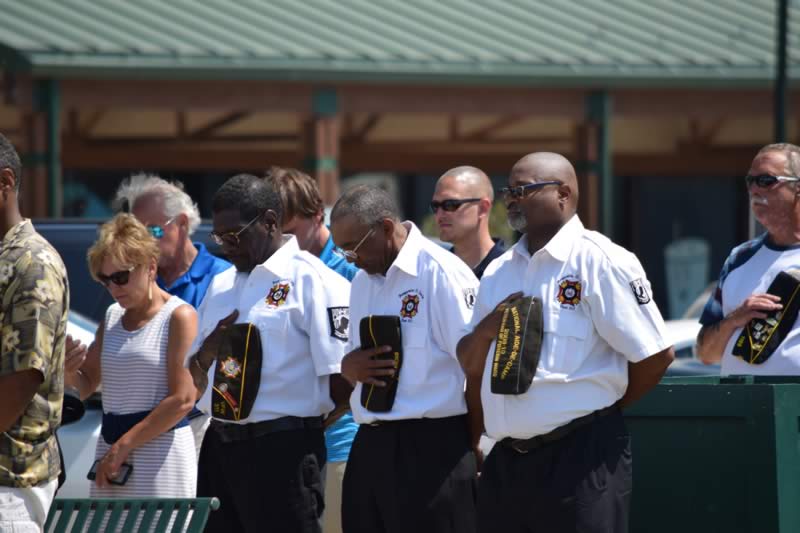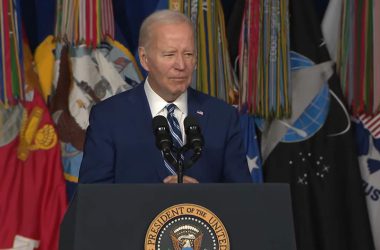Washington, DC–(ENEWSPF)–November 21, 2013.
Earlier this year, as many others were, I was shocked when the Department of Defense released a stunning report about the increase in sexual assault among the branches of the armed forces. Sexual assault in the military is neither a new issue, nor an uncommon one. It has been a problem for decades. Its occurrence is a stain on the honor of our military and nation that we must all work to eliminate. Military bases are where our troops are supposed to be safe, and to know that they risk being in harm’s way not only when deployed, but among their fellow service members as well, is horrible.
I have worked hard to bring greater attention to the ongoing problem of sexual violence in our communities and am proud of the significant improvements we made in the recent reauthorization of the Violence Against Women Act earlier this year. It is time we bring the same level of attention to the crisis on our military bases.
While this epidemic is not representative of the vast majority of our service men and women, who serve honorably and conduct themselves commensurate with our expectations of those in uniform, it is also not isolated to just a handful of bad actors. We can no longer ignore that the time is long overdue for meaningful changes to help end sexual assault and harassment in the ranks of our armed forces. We must work together to protect victims and provide appropriate help and support, and to ensure that those responsible for such crimes are held accountable.
Just as our civilian justice system is the envy of the world, our military justice system must also meet that standard. That is why I am a cosponsor of Senator Gillibrand’s Military Justice Improvement Act, and why I support her amendment to the National Defense Authorization Act (NDAA).
In last year’s defense authorization bill, Congress included provisions meant to address sexual assault in the military. That legislation required the Secretary of Defense to prescribe standards for victim support, and mandated an independent review and assessment of the systems used to adjudicate crimes involving sexual assault and related offenses.
When the Department of Defense released its Fiscal Year 2012 report on sexual assault in the military earlier this year, its findings were jarring, and for many – myself included – they were infuriating. To make matters worse, the problem seems only to be growing.
The status quo for how we deal with sexual assault and unwanted sexual contact in the military is untenable. If we are serious about curing this problem, we need to get serious about making fundamental changes to how it is addressed. We cannot expect that by doing the same thing over and over again we will achieve different results.
I supported Secretary of Defense Chuck Hagel’s proposals this summer to limit a commander’s authority to overturn major court martial verdicts, among other reforms to the system. I am pleased that the members of the Senate Armed Services Committee included this key provision, as well as other measures to address the so-called “good solder” defense, and to require commanders to immediately report alleged sexual assaults to the investigative office, in this year’s defense authorization bill.
Senator Gillibrand’s proposal is another move in the right direction, taking these reforms a step further by removing the determination to bring sexual assault cases from the chain of command, and giving that discretion to an experienced military prosecutor. This is a commonsense solution, and I commend her for her clear-eyed and energetic leadership on this issue.
Senator McCaskill’s proposal also includes strong protections for victims, so that the process of getting justice for these crimes does not revictimize those who come forward to report them. I believe Senator McCaskill’s proposal also is a step in the right direction to encourage victims to come forward and report these crimes. Our nation’s troops should not have to fear sexual assault, and if they are victims, they certainly should not fear any stigma after bringing to light unwanted sexual contact.
Surely we can all agree that we have an obligation to ensure that our men and women in uniform are protected from the threats we can control. Holding perpetrators of sexual assault and unwanted sexual contact accountable, and caring for, supporting and protecting those victims, is within our control. I hope Senators on both sides of the aisle will join me in supporting reforms that will fundamentally change the way we approach this issue in order to achieve better results.
Source: leahy.senate.gov








